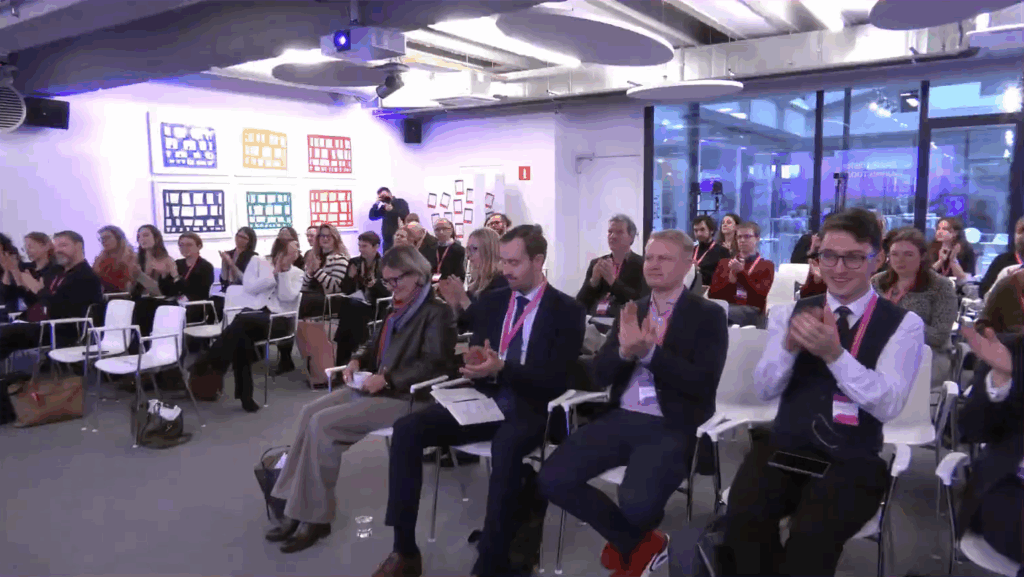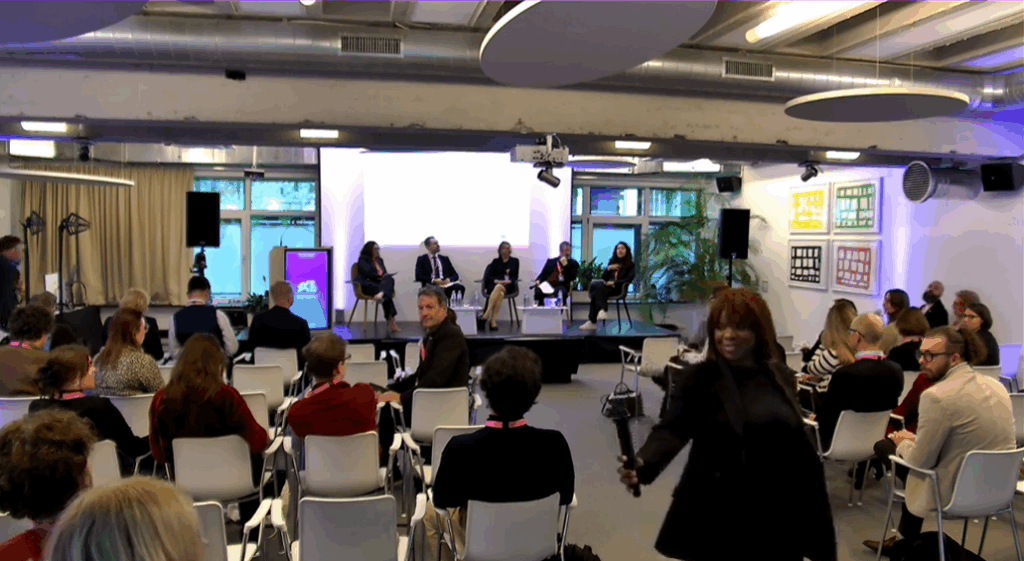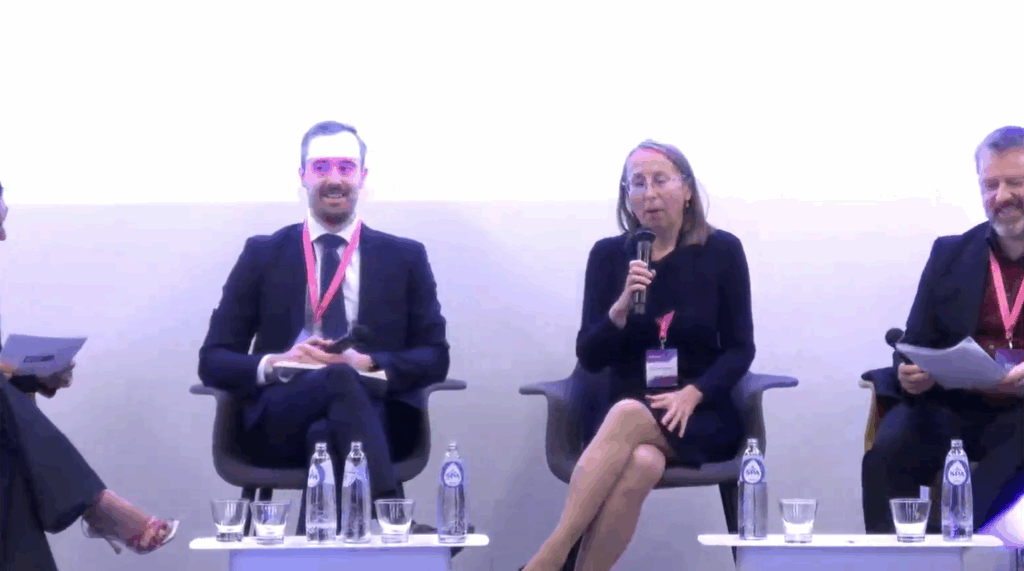EARLALL at DigiEduHack 2025: Rethinking Education in the Age of Digital Skills
26/11/2025

On 25 November, EARLALL took part in the 6th edition of DigiEduHack, held in Brussels under the theme “Rethinking education in the age of digital skills.” The Main Stage event brought together the global DigiEduHack community following the Hackathon Days (7–16 November), celebrating the creativity, solutions, and collaboration emerging from teams worldwide. Master of Ceremonies Suyin Aerts welcomed participants joining both onsite and online.
Opening Session
Pia Ahrenkilde Hansen, Director-General of DG EAC, opened the event by highlighting the impressive global engagement in this year’s hackathon:
- participants from 31 countries,
- around 2,000 hackathon participants, including teams from Canada, Peru, and Kazakhstan,
- and more than 10,000 people involved overall.
She noted the rapid spread of accessible AI tools and reaffirmed that digital skills are now among the top five essential competences for the future.
Keynote
Saskia Van Uffelen, Manager Future Workforce & BeTheChange at Agoria, reflected on Belgium’s digital skills landscape, noting that around 40% of Belgians aged 18–40 lack basic digital skills, despite living in one of Europe’s most connected countries.
She stressed that:
- cyber skills are deeply tied to human behaviour and interpersonal understanding,
- AI, IT, and AI-driven business applications are transforming learning and work,
- Europe must complement formal education with non-formal learning pathways to reach wider groups of learners.
Panel Discussion — Bridging Education and Labour Markets in the Digital Age
The first panel brought together experts from education, government, and industry to explore how Europe can address the widening digital skills gap.
Nils Elofsson, representing BusinessEurope, highlighted a persistent mismatch between labour market needs and students’ digital preparedness. With 90% of jobs now requiring digital skills, he stressed the value of stronger partnerships between education and industry, more apprenticeships, teacher–industry exchanges, and a culture of lifelong learning starting early.


Dr Paulína Koršňáková, Senior Research and Liaison Adviser at the IEA, presented findings from ICILS 2023, the only global large-scale assessment focused exclusively on digital literacy. The study involved more than 130,000 students, 60,000 teachers, and 5,000 schools across 34 countries. She explained the three domains of Computer and Information Literacy (CIL). She highlighted the distribution of student performance, noting that girls outperform boys across all levels. She also warned that no country is on track to meet the Digital Education Action Plan target of reducing low achievers to below 15% by 2030 — the EU average remains at 40%, signalling the need for stronger action.
Jan de Craemer, from the Flemish Ministry of Education and Training, voiced concern about Europe’s ability to meet the 2030 digital education targets without substantial change. He emphasised the need to remove barriers not only for learners in general but also specifically for girls, ensuring equal access to digital education.
Marianna Marcucci, Chair of the Board of ALL DIGITAL, highlighted the importance of linking formal and non-formal learning to build a resilient European skills ecosystem. She pointed to the hesitancy of businesses to invest in digital training, the need to translate between the language of education (competences) and business (productivity), and the value of fostering curiosity, creativity, and technological understanding in learners of all ages.
Panel Discussion — Learning by Hacking: How Hackathons Drive Innovation
The second panel explored hackathons as innovative learning tools that promote digital skills, collaboration, and hands-on problem solving.
Davide Coppaloni (JA Europe), Juhani Koivuviita (Educraftor), Gabriele Tealdo (University of Trento, 2024 DigiEduHack winner), and Victoria Belous (DigiEduHack Ambassador) shared insights into how hackathons:
- allow learners to apply theoretical knowledge to real-life challenges,
- support curriculum modernisation,
- strengthen industry–education cooperation,
- and increase interest in STEM fields.
Closing Remarks
Francesca Maltauro, Deputy Head of the Digital Education Unit at DG EAC, closed the event by thanking the organising EAC team and all participants, who had been engaged since the morning and actively contributed to the discussions. She noted that this level of engagement symbolises one of the key messages of the day: we all need digital skills, and the latest ISIL results are not particularly strong – and in some cases even worrying – but each of us possesses skills that can support others.
She reflected on what resonated most with her, starting from Saskia’s intervention on appreciative understanding: recognising that others may have a different standpoint than our own, and focusing on what each person can bring to the discussion with their specific skills. She emphasised that her own skills, in today’s society, are unlikely to be sufficient for any professional context she finds herself in. Therefore, teamwork is essential – drawing on colleagues’ strengths and collaborating, especially in a world where the norm is often turned upside down, as Saskia had illustrated when explaining how things can shift and reverse.
Francesca also highlighted the importance of awareness: students’ exposure to technology, and their consumption of it, does not automatically translate into the development of basic digital skills. Finally, she underlined curiosity as a key future skill – one that must be nourished, nurtured, encouraged, and often taught, ideally by leading through example.
For EARLALL, the event underlined the need for stronger regional cooperation in digital education to bridge skill gaps and support high-quality learning opportunities for all.

